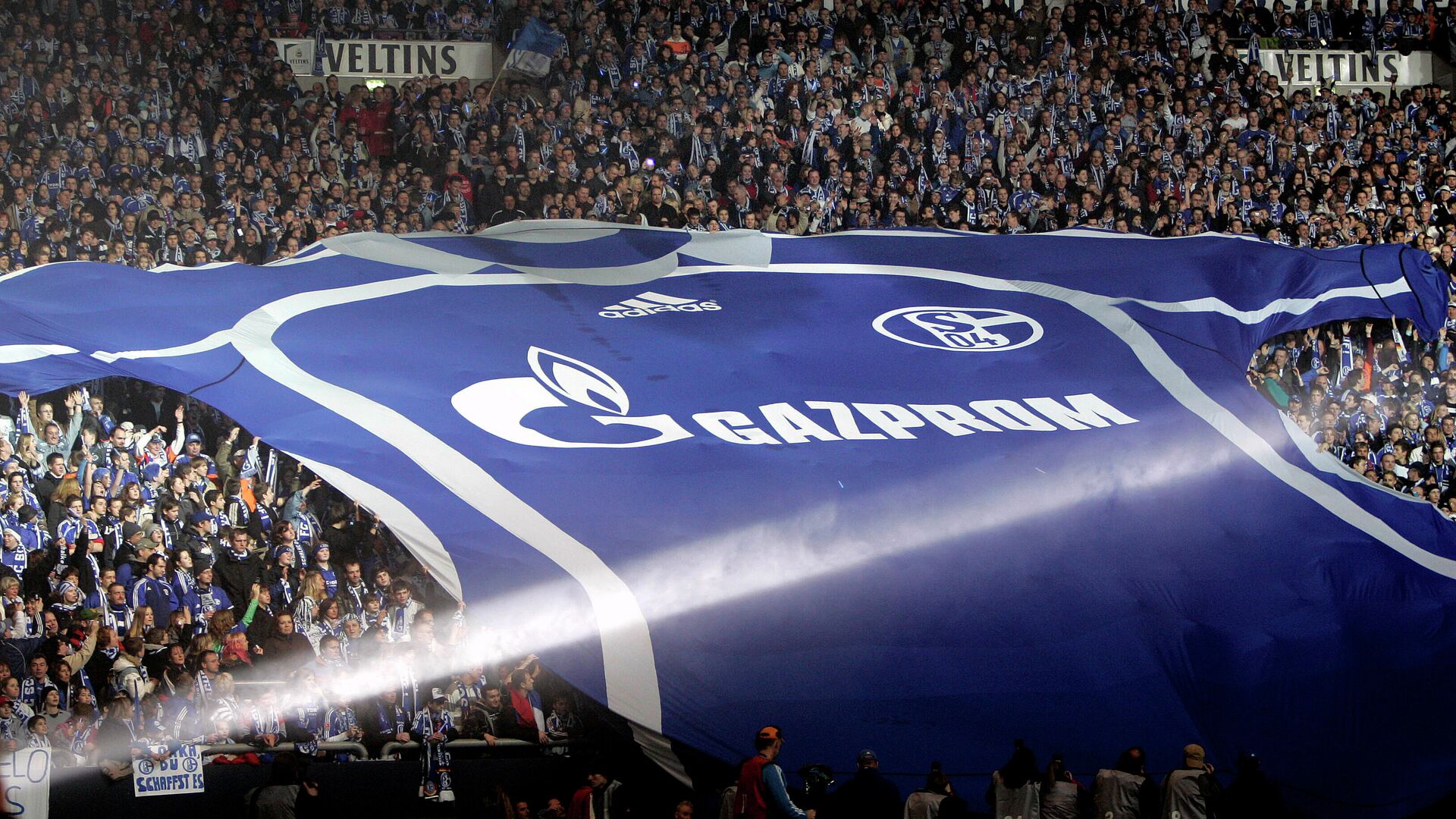https://sputnikglobe.com/20220411/politics-and-sports-do-not-make-a-good-combo-so-why-do-countries-keep-mixing-them-up-1094666639.html
Politics and Sports Do Not Make a Good Combo, So Why Do Countries Keep Mixing Them Up?
Politics and Sports Do Not Make a Good Combo, So Why Do Countries Keep Mixing Them Up?
Sputnik International
For a long time, the likes of the International Olympic Committee (IOC) and FIFA have adhered to the belief that sports should remain politically neutral. But... 11.04.2022, Sputnik International
2022-04-11T15:24+0000
2022-04-11T15:24+0000
2022-12-10T11:45+0000
sport
russia
ukraine crisis
sputnik
olympics
olympics
uefa
international olympic committee (ioc)
ioc
vladimir putin
https://cdn1.img.sputnikglobe.com/img/07e6/03/01/1093484141_0:53:3257:1885_1920x0_80_0_0_f9ea4429c89ac782b3cc487318a22bb2.jpg
It is often said that sports and politics do not make good bedfellows. But over the past month-and-a-half, against the backdrop of the Russia-Ukraine conflict, it has become increasingly obvious that not only are the two connected, they are inseparable.After President Vladimir Putin announced a special military operation in the neighbouring country, the sports world reacted with a bevvy of sanctions on Russian athletes, with the IOC taking the lead in barring them from participating in international competitions.The IOC's decision was in stark contrast with frequent pronouncements from its president Thomas Bach who has deplored the mixture of sports and politics; as recently as 2020 he said that the Olympic Games were above all kind of "political differences"."We can only accomplish our mission to unite the world if the Olympic Games stand above and beyond any and all political differences. We can achieve this global solidarity and true universality only if the IOC and the Olympic Games are politically neutral," he said at the time.Despite that, Harish Tiwari, a professor at India's National Sports University, has highlighted that sports and politics can never really be "separated from each other".Immediately after the IOC's diktat, both FIFA and UEFA followed suit as the Russian teams (both club and country) were evicted from taking part in tournaments hosted by both organisations, including the Men's World Cup in Qatar, Women's Euros and the Champions League.Russia's case reeks of hypocrisy, considering not even one sports organisation banned the US or the UK athletes from participating in their events when these countries invaded Iraq in 2003. The pretext of the invasion was weapons of mass destruction (WMDs), which America and its allies claimed were hidden by Iraqi President Saddam Hussein in secret bunkers, an allegation proved to be untrue years later.The second wave of sanctions, stripped Russia's athletes from hoisting their flag at the Winter Olympics in Beijing.Then came the ultimate shocker when Daniil Medvedev, the reigning US Open champion in men's tennis was reportedly asked to remove the "Russian" flag from his Instagram account.This was a shocking intrusion into the privacy of an individual because social media platforms are meant to display one's own beliefs, not those of an organisation.G Rajaraman, a veteran sports journalist, has argued that the time "when sports and politics were seen as separate entities is over. All the world over everybody sees sports as a soft power and it is also a revenue-earning industry for countries and sports federations".Over the years, several sovereign states, including India have used sports to whip up national passions - the best case in point being the boycott of Pakistani cricketers by the Indian Premier League (IPL), the premier T20 tournament in the world.India has even refused to engage Pakistan in bilateral cricket tournaments and has not played a series with their neighbours in the past nine years.The Indian government didn't officially ban the participation of neighbouring country's players from the IPL, after the 26/11 attack on Mumbai by Pakistan-based terrorists which killed 175 people, and wounded more than 300. The decision was made by the respective franchises, who didn't want to be associated with Pakistan in any way whatever.Treasurer of the Indian Olympic Association (IOA) Anandeshwar Pandey, has said it isn't the "economics" but the public's perception which is a priority behind making such decisions.Yet, India has never banned Pakistani athletes from competing in global tournaments held in the country. For example, the Islamic nation's cricketers were never stopped from arriving to compete in the ICC Cricket World Cup in 2011, nor were they prevented from featuring in the T20 World Cup in 2016.The Pakistani team also participated in the field hockey World Cup held in Bhubaneswar, the capital of India's eastern state of Odisha. And a Pakistani contingent arrived in India to feature in the junior field hockey World Cup in the same city.
ukraine
Sputnik International
feedback@sputniknews.com
+74956456601
MIA „Rossiya Segodnya“
2022
Pawan Atri
https://cdn1.img.sputnikglobe.com/img/07e5/05/12/1082926219_0:0:358:358_100x100_80_0_0_aca1d9bdccc7af990e49b4511ee80344.png
Pawan Atri
https://cdn1.img.sputnikglobe.com/img/07e5/05/12/1082926219_0:0:358:358_100x100_80_0_0_aca1d9bdccc7af990e49b4511ee80344.png
News
en_EN
Sputnik International
feedback@sputniknews.com
+74956456601
MIA „Rossiya Segodnya“
Sputnik International
feedback@sputniknews.com
+74956456601
MIA „Rossiya Segodnya“
Pawan Atri
https://cdn1.img.sputnikglobe.com/img/07e5/05/12/1082926219_0:0:358:358_100x100_80_0_0_aca1d9bdccc7af990e49b4511ee80344.png
sport, ukraine crisis, sputnik, olympics, olympics, uefa, international olympic committee (ioc), ioc, vladimir putin, thomas bach, cricket, cricket, politics, fifa, ukraine
sport, ukraine crisis, sputnik, olympics, olympics, uefa, international olympic committee (ioc), ioc, vladimir putin, thomas bach, cricket, cricket, politics, fifa, ukraine
Politics and Sports Do Not Make a Good Combo, So Why Do Countries Keep Mixing Them Up?
15:24 GMT 11.04.2022 (Updated: 11:45 GMT 10.12.2022) For a long time, the likes of the International Olympic Committee (IOC) and FIFA have adhered to the belief that sports should remain politically neutral. But these same bodies have now backtracked on their beliefs and played a key role in banning Russian athletes from global tournaments after the launch of its military operation in Ukraine.
It is often said that sports and politics do not make good bedfellows. But over the past month-and-a-half, against the backdrop of the
Russia-Ukraine conflict, it has become increasingly obvious that not only are the two connected, they are inseparable.
After President Vladimir Putin announced a
special military operation in the neighbouring country, the sports world reacted with a bevvy of sanctions on Russian athletes, with the IOC taking the lead in barring them from participating in international competitions.
The IOC's decision was in stark contrast with frequent pronouncements from its president Thomas Bach who has deplored the mixture of sports and politics; as recently as 2020 he said that the Olympic Games were above all kind of "political differences".
"We can only accomplish our mission to unite the world if the Olympic Games stand above and beyond any and all political differences. We can achieve this global solidarity and true universality only if the IOC and the Olympic Games are politically neutral," he said at the time.
Despite that, Harish Tiwari, a professor at India's National Sports University, has highlighted that sports and politics can never really be "separated from each other".
"Almost every sports organisation in the world, be it FIFA, the IOC or Wimbledon for that matter, receives funding from a group of countries or from their respective nation's government. Hence, they can't remain neutral in times of conflict," he says.
Immediately after the IOC's diktat, both
FIFA and UEFA followed suit as the Russian teams (both club and country) were evicted from taking part in tournaments hosted by both organisations, including the Men's World Cup in Qatar, Women's Euros and the Champions League.
Russia's case reeks of hypocrisy, considering not even one sports organisation banned the US or the UK athletes from participating in their events when these countries invaded Iraq in 2003. The pretext of the invasion was weapons of mass destruction (WMDs), which America and its allies claimed were hidden by Iraqi President Saddam Hussein in secret bunkers, an allegation proved to be untrue years later.
The second wave of sanctions, stripped Russia's athletes from hoisting their flag at the Winter Olympics in Beijing.
Then came the ultimate shocker when Daniil Medvedev, the reigning US Open champion in men's tennis was reportedly asked to remove the "Russian" flag from his Instagram account.
This was a shocking intrusion into the privacy of an individual because social media platforms are meant to display one's own beliefs, not those of an organisation.
G Rajaraman, a veteran sports journalist, has argued that the time "when sports and politics were seen as separate entities is over. All the world over everybody sees sports as a soft power and it is also a revenue-earning industry for countries and sports federations".
"Sports as an influencer is a massive thing, and therefore it does take a hit every time there is an international crisis. In the case of cricket, India doesn't want to facilitate big revenue earning for Pakistan since a bilateral cricket series between the two countries is a money spinner," he says.
Over the years, several sovereign states, including India have used sports to whip up national passions - the best case in point being the boycott of Pakistani cricketers by the Indian Premier League (IPL), the premier T20 tournament in the world.
India has even refused to engage Pakistan in bilateral cricket tournaments and has not played a series with their neighbours in the past nine years.
The Indian government didn't officially ban the participation of neighbouring country's players from the IPL, after the 26/11 attack on Mumbai by Pakistan-based terrorists which killed 175 people, and wounded more than 300. The decision was made by the respective franchises, who didn't want to be associated with Pakistan in any way whatever.
Treasurer of the Indian Olympic Association (IOA) Anandeshwar Pandey, has said it isn't the "economics" but the public's perception which is a priority behind making such decisions.
"The IOA has never focused on big bucks and has always made national sentiments its main priority. If you remember, last year, we dissociated ourselves from a sponsor belonging to a particular country because the mood of the nation was against it," Pandey says.
Yet, India has never banned Pakistani athletes from competing in global tournaments held in the country. For example, the Islamic nation's cricketers were never stopped from arriving to compete in the ICC Cricket World Cup in 2011, nor were they prevented from featuring in the T20 World Cup in 2016.
The Pakistani team also participated in the field hockey World Cup held in Bhubaneswar, the capital of India's eastern state of Odisha. And a Pakistani contingent arrived in India to feature in the junior field hockey World Cup in the same city.



